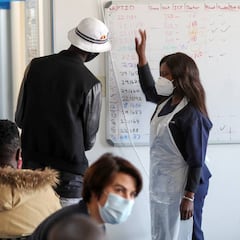AstraZeneca vaccine participant suffered serious neurological disorder
Two instances of volunteers in the UK trial of the AstraZeneca-Oxford vaccine candidate suffering neurological illnesses have raised concerns.

The global trial of the AstraZeneca-Oxford Covid-19 vaccine candidate, considered one of the more promising among the many being developed worldwide, is facing a further setback after the New York Times reported a second trial volunteer had suffered side effects from the experimental drug.
The late stage trial was put on hold earlier this month after a case of transverse myelitis, an inflammatory syndrome that affects the spinal cord and is often sparked by viral infections, was reported in a trial participant in the UK. According to the NYT, another suspected case of transverse myelitis has now been reported. An AstraZeneca spokesperson told the US publication that in the first instance a case of undiagnosed multiple sclerosis had been detected in the first volunteer.
The second case has yet to be diagnosed but an expert consulted by the NYT said it would represent a “dangerous pattern” and that a third case could see the trial shut down indefinitely.
However, AstraZeneca published data on 11 September that the company said showed the two cases were “unlikely to be associated with the vaccine or there was insufficient evidence to say for certain that the illnesses were or were not related to the vaccine.”
AstraZeneca trials still on hold in the United States
Experts have been particularly concerned about AstraZeneca’s vaccine trials because of the company’s refusal to provide details about serious neurological illnesses in two participants. https://t.co/9DMq3Z1Nti
— New York Times World (@nytimesworld) September 20, 2020
Related stories
Trials of the AstraZeneca-Oxford University vaccine candidate have been restarted in the UK, Brazil, South Africa and India but remain on hold in the United States, where experts have expressed their preoccupation with a perceived lack of transparency in Covid-19 vaccine trials being carried out by various companies including AstraZeneca, Pfizer and Moderna. Public and professional concerns led all the three companies to release details of their trials in recent weeks.
There are currently 18,000 people participating in the trials worldwide and according to experts it is normal for some volunteers to show adverse effects to an experimental vaccine. However, the latest reports of a participant in the AstraZeneca trial suffering potentially the same complications as the first patient will increase pressure on the company not to rush the development of its vaccine and to increase transparency over the trials.

